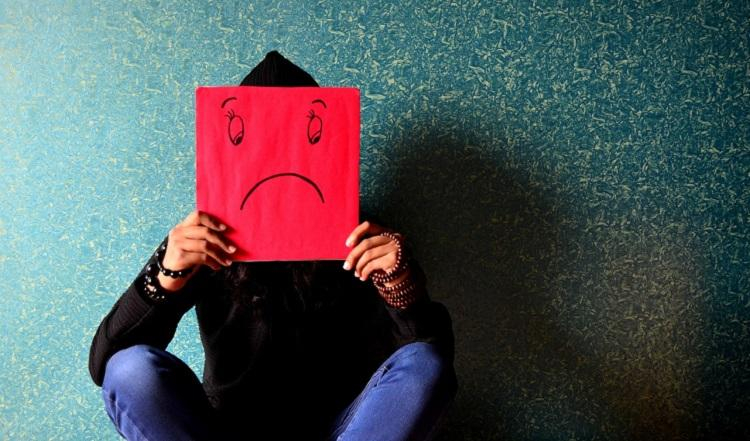A Ramadan in the Shadows - When You Struggle with Mental or Chronic Illness
Faith
|
May 21, 2019
|
4 MIN READ

By Sahar Abdulaziz
For most people, Ramadan is a joyous and unifying experience; a time of spiritual renewal and growth. But for Muslims living with depression and anxiety disorders, the onset of Ramadan can be terrifying. For those existing in the shadows because they’re combating an easily concealed chronic illness, it can also be a time of misunderstanding, isolation and loneliness.
“Most people think that mental illness is the guy walking down the street talking to himself,” explains educator and author Khadijah Abdulhaqq. “However, in actuality, most symptoms of mental illness are invisible. People with mental illnesses learn how to function in mid-disease, much like people affected with diabetes, fibromyalgia, lupus and other chronic diseases.”

Depression and anxiety disorders leave a person’s exterior appearance intact while significantly affecting their inner world. It’s a double-edged sword, a curse and a blessing. On the one hand, the hidden nature of the disorder can help conceal how a person honestly feels, allowing them to project a healthy, care-free demeanor and appearance. But because the person looks “just fine,” the disorder may be perceived as less than legitimate.
Sufferers of mental illness have a unique struggle. They not only have to cope with symptoms, but they have to cope with the stigma about what the illness may represent in the minds of acquaintances and even family members. Additionally, there are many myths and misunderstandings about the various mood disorders,” says social worker, Julia Terry.
Will others think I am less faithful if I am unable to fast, since I look healthy? Although provisions exist in Islam that make allowances for those too ill to fast, the stigma of being seen not fasting when one appears fit and able-bodied may be particularly tricky.
Unlike physical disabilities, psychic pain is invisible to the eye.
Depression and anxiety are described as pain so intense that they can send those suffering into the dark depths of despair. Hypercritical comments - even when posed as innocent questions - can place undue stress, shame and feelings of inadequacy on those unable to fast.
Here are a few examples:
“How’s your fast going?” If this is said to someone who is suspected of not fasting. It is an accusation disguised as a question and passive-aggressive in tone.
“Why aren’t you fasting today?” A more direct question that lacks empathy. It should be noted that having a mood disorder is a full-time job with numerous responsibilities. Dodging antagonism should not be one of them.
“Why can’t you fast?” Here is another prime example of a question that should never be asked. Just because a person looks healthy on the outside doesn’t mean things haven’t changed drastically for them on the inside.

Our masjids should be safe zones for all Muslims, not combative places inundated with emotional minefields. Those battling illness have just as much right to participate in community and religious events as the healthy without feeling judged or maligned. Increased awareness and non-judgmental and open conversations concerning critical topics such as these need to occur before more people are shunned or ostracized away from the deen.
Mood disorders cannot be managed well in isolation. A person with depression, anxiety, PTSD, OCD, SAD and/or PPD should feel safe to communicate their needs and wants without being made to feel guilty or treated like a burden.
“There is help, there are options, and most importantly, people need to know that they aren’t alone. It is amazing how much power there is in the awareness that one is not the only person going through his or her ordeal. Having awareness in and of itself can lessen the stress of living with these conditions,” adds social worker Nancy Gordon.
Sometimes, however, people with mental health disorders may doubt the severity of their illness, questioning as to whether or not it’s a valid enough reason not to fast. At the expense of their wellbeing, those on medication may reschedule or dismiss entire dosages to satisfy the stringent time constraints of a Ramadan fast, never realizing what potential health complications they are exposing themselves too. And all because they are under the false assumption that if they don’t fast, they are sinning.
It is also incumbent on those living with easily concealed mood or anxiety disorders to learn how to share and educate about their struggles with family, friends and community. Sharing experiences and keeping an open mind about the different paths we each take can bring about a profound change of understanding and a window of opportunity for those unable to fast from food. These individuals can still participate in the Ramadan experience in countless and compelling ways, benefiting not only them but the community at large.
Remain gentle in spirit.
Ramadan Kareem.
Sahar Abdulaziz has authored seven books, the latest being a contemporary fiction novel, Expendable. Abdulaziz’s work covers a wide range of hard-hitting topics: mood disorders (depression, anxiety, PTSD, OCD, PPD), domestic violence and sexual assault, marital and family dysfunction, racism, sexism, and prejudice, but most of all -- survivorship. Find her on Twitter: @Sahar_Author; and on Facebook: Sahar Abdulaziz Author. A version of this article originally appeared on Altmuslim.
Subscribe to be the first to know about new product releases, styling ideas and more.
What products are you interested in?

